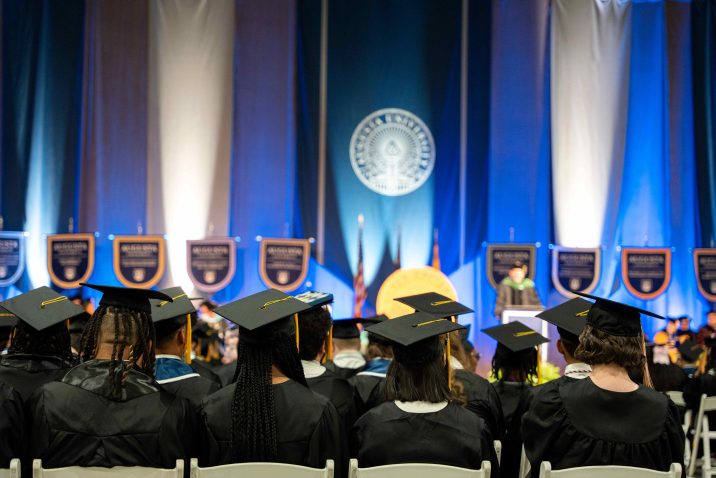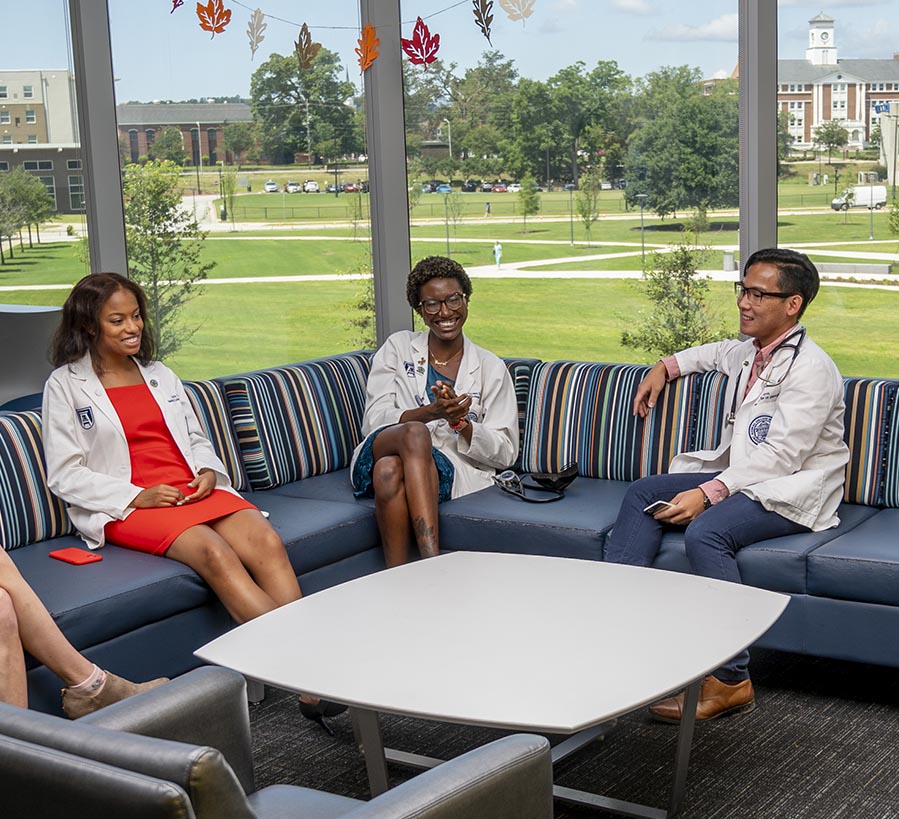Neuroscience
With a PhD in Neuroscience, you’ll be prepared to take your understanding of neurobiology and neurological disorders to careers in academia, government, biotech, and the pharmaceutical industry.
The program offers coursework and research experience in areas including spinal cord injury, Parkinson’s disease, traumatic brain injury, stroke, and Alzheimer’s disease.
By choosing to earn your doctorate in Neuroscience from the Medical College of Georgia at Augusta University, you’ll be joining a highly collaborative program with dynamic opportunities for translational research.
Neuroscience is for you if you consider yourself
Life-Changing
Life-Saving
Education
Want to learn more about the Neuroscience program at Augusta University?
Request InfoWhat You'll Study
Coursework
Students in Augusta University’s Doctor of Philosophy in Neuroscience program are admitted via a common admissions process to the Biomedical Sciences doctoral programs. After completing the first-year core coursework and laboratory rotations, students choose a dissertation research mentor and enter the Neuroscience program.
The average time to complete the degree is approximately five years of full-time, year-round study.
Curriculum | Admissions Criteria | Tuition and Fees | Application Deadlines



EXPLORE. EXCEL. EXPAND.
Graduate School Advantage
Augusta University's graduate programs are among the best in the nation – and the world – and our graduate students are our most valuable assets. To ensure that our students earn more than a degree, the Graduate School offers a range of opportunities so they can develop the leadership, communication and personal skills needed for a rewarding life and academic, research or professional career.
See what the Graduate School has to offer »
About the Graduate SchoolExperience-based Education
Outside the Classroom
Students can attend weekly Lunch and Learn sessions with world-class scientists, gaining exposure to the latest scientific discoveries and benefiting from exceptional networking opportunities.
Clinical Collaborations
The program combines clinical and basic neuroscience resources to give students the widest possible research opportunities.
Rich History
As the state’s only public medical school, MCG is recognized as Georgia’s leading provider of physicians and receives millions in funding each year from the NIH.
Student Success
Graduates of the program are working in industry, government, and scientific writing, as well as many of the country's top academic institutions.
Accomplished Faculty
Internationally recognized faculty conduct groundbreaking research in a collaborative and supportive research environment.
Your Future
Career Options
According to the U.S. Bureau of Labor Statistics, job growth for medical scientists is projected to rise much faster than average.
The median pay for a medical scientist is$100,890 per year.
Profiles
Student Stories
The faculty and student interactions are all so enjoyable. We are able to be comfortable and confident in a professional setting while still being able to make mistakes, ask questions, have fun, learn, and grow as scientists.
Julie Vincent
My research area is neuronal reprogramming, which is a cutting-edge technology that facilitates potential treatment for patients with spinal cord injuries and neurodegenerative diseases.
Natalie Mseis-Jackson
Admissions Criteria at a Glance
GPA: Overall GPA of 3.0 on a 4.0 scale at the Baccalaureate level calculated on all undergraduate work.
Degree Requirement: Minimum of a Bachelor’s degree or equivalent from an accredited college or university.
Transcripts: Official transcripts are required from all universities and colleges ever attended. Unofficial transcripts from US colleges and universities can be used in the admissions review process in lieu of official transcripts for this program.
Standardized Test Requirements: None are required for this program.
Letters of Recommendation: Recommendations from three individuals must be submitted through the application portal.
Resume: Applicants must submit a resume or curriculum vitae within the application portal.
Research Experience: Research experience is required for admission. Within the application, you will be prompted to provide both personal and research statements. Please consult the application for the full statement prompts.
International Students: Please review the verification process for international transcripts and the english proficiency requirement.
Tuition & Fees Estimate
$4,801*
Estimated total
Full-time / In-State / Per Semester
$401
Tuition Per Hour
$675
Mandatory Fees
View Detailed Program Tuition
*Tuition & Fees listed here are for in-state students enrolling in the university for Fall 2024 semester.
Detailed Program Tuition InformationApplication Deadlines
Fall '26 International Deadline**
- December 1, 2025
Fall '26 Deadline
- December 1, 2025 - extended to December 15, 2025
Early submission of all application materials is strongly advised.
All required application materials and documents must be received in order for an application to be considered complete and before an admission decision can be made. The program does not accept applications after the published application deadline, however the program will continue to accept application materials up to 2 weeks after the application deadline.
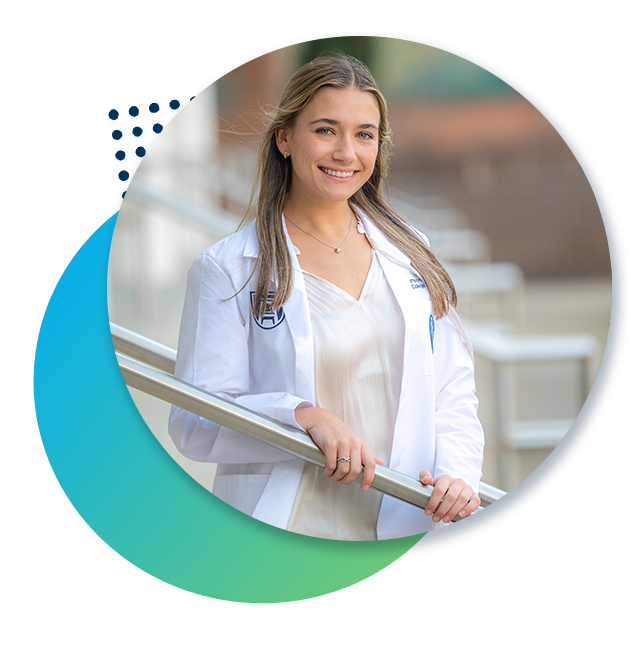
Why Augusta?
Strong technology resources allow you to perform cutting-edge neuroscience research.
Weekly seminars and the annual Brain Aging Research Symposium provide excellent opportunities for you to learn from — and network with — world-class researchers from around the world.
Studying at Augusta University’s Health Sciences Campus puts you at the center of its biomedical research enterprise, with access to the Georgia Cancer Center, the Medical College of Georgia, and the state’s only public academic medical center.
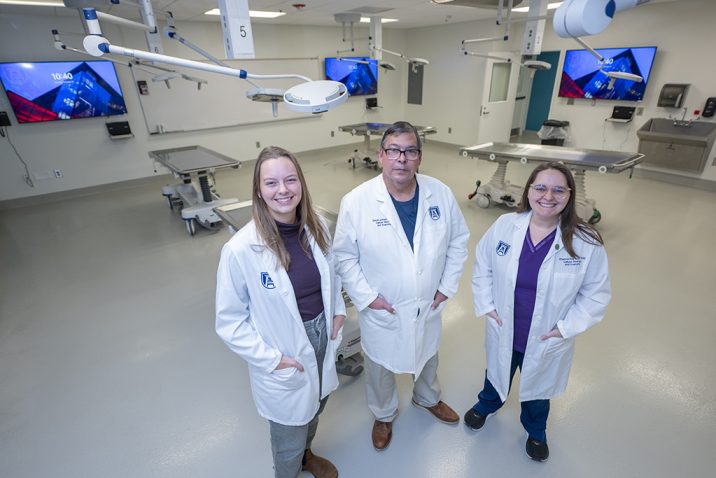
Families leave lasting contribution to medical science with body donations
Families leave lasting contribution to medical science with body donations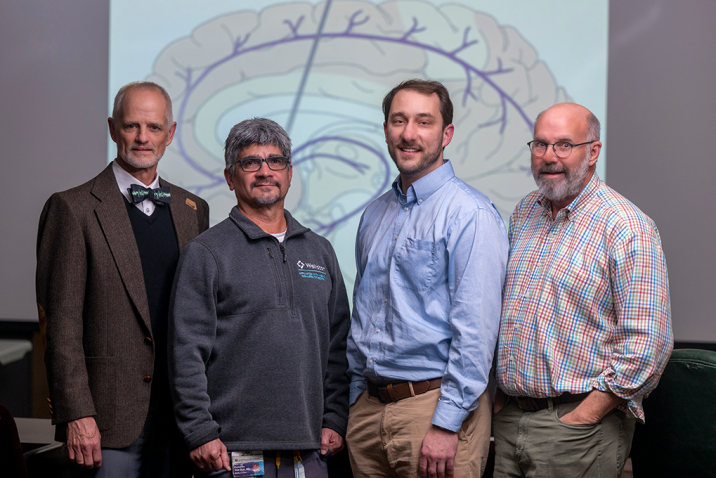
MCG starts human trials on deep brain stimulation for Alzheimer’s patients
MCG starts human trials on deep brain stimulation for Alzheimer’s patients